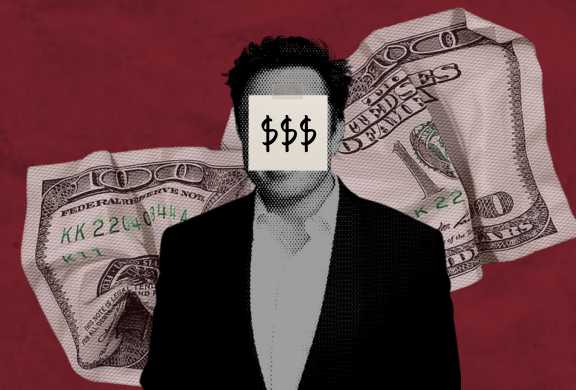Wage gaps do not only affect women but the whole world. According to a Moody’s Analytics report, if the pay gap between women and men is reduced, it will boost the world economy by 7%.
Dr. Claudia Goldin, a professor at Harvard, has spent her whole career researching the gender pay gap and how to narrow it. On October 9, she became the the third woman to receive the 2023 Sveriges Riksbank Prize in Economic Sciences, which is also known as the “economic Nobel.” In her award-winning research, she explores this wage gap between women and men.
Dr. Goldin’s research sheds light on the under-representation of women in the workforce and gender pay gaps between women and men.
Her research identifies this wage gap as a market inefficiency. Market inefficiencies are defined as a “failure of the market to create the socially optimal outcome, or distribution of resources,” said Mr Katz, Upper School social studies teacher. Like Dr. Goldin, he believes that this wage gap is a market inefficiency. He says that women are a part of the workforce, but because they are not paid adequately for their work, the resources of the market are not distributed equally. “They’re doing a lot of work that goes uncompensated, which is a failure of the market,” he said.
It is especially common for women to be underpaid for their work in male-dominated fields, such as engineering. Mrs. Hejna, Upper School math teacher and civil engineer, recalls a clear incident where wage gaps were obvious in one of her first jobs out of college. “I was looking at confidential information that was salary-based, and in every category, women were the lowest paid,” she said.
Dr. Goldin attributes the main cause of wage gaps between women and men to parenthood. Mr. Katz also believes that women are disproportionately tasked with staying at home to take care of children. “They basically have to be on call as parents, which means they can’t spend as much time being on call with a job or doing things that would advance them in a competitive workforce,” he said.
Dr. Goldin’s research highlights the need for couple equity. If household tasks are split equally, women have a chance for equal opportunities in the workforce and more time to spend on their careers.
In addition to increasing couple equity, reducing “greedy jobs” could help lower wage gaps. According to Dr Goldin, greedy jobs are “high-paying, high-pressure jobs that require people to prioritize work over all other aspects of their lives.” Because of the high salaries these jobs offer, they can lead to making difficult decisions.
Dr Goldin also suggests increasing government funding of child care. If child care is more readily available and cheaper, women will have the ability to work instead of having to take care of children.
However, many questions remain on how to help lower wage gaps between women and men. “For example: Why do women, not men, step back from these higher-paid opportunities?” asks Goldin. “And how can we make these ‘greedy jobs’ less demanding, without making them less productive? That’s the next frontier we’ll need to explore.”






































Paola Consuegra • Dec 25, 2023 at 9:16 am
Excellent article and ongoing issue for women!!!!